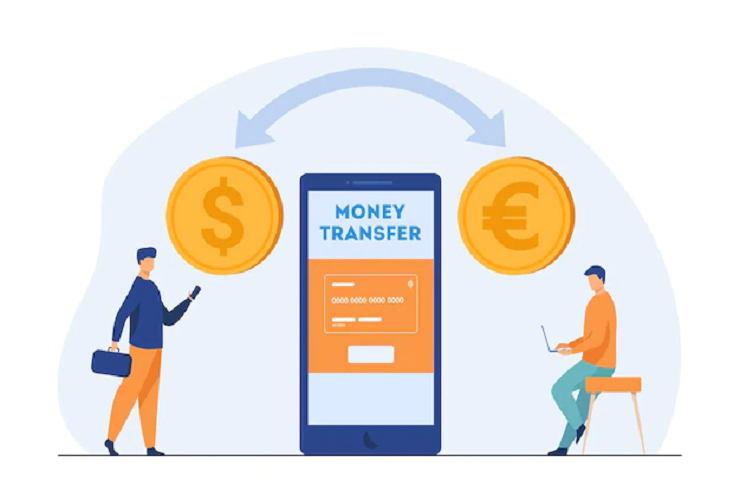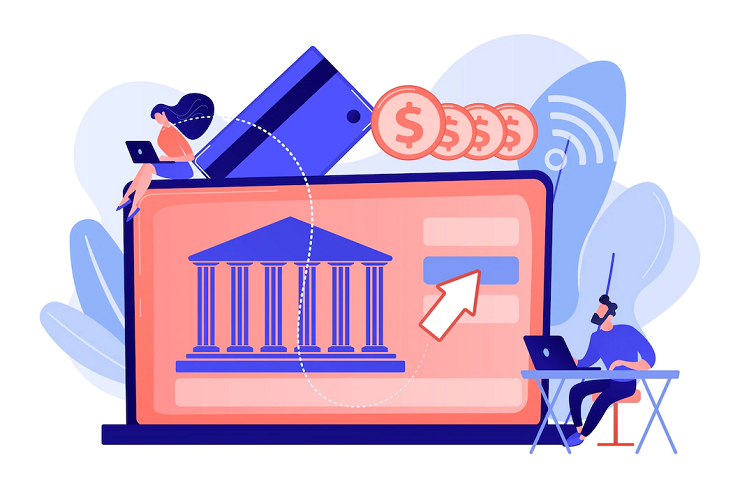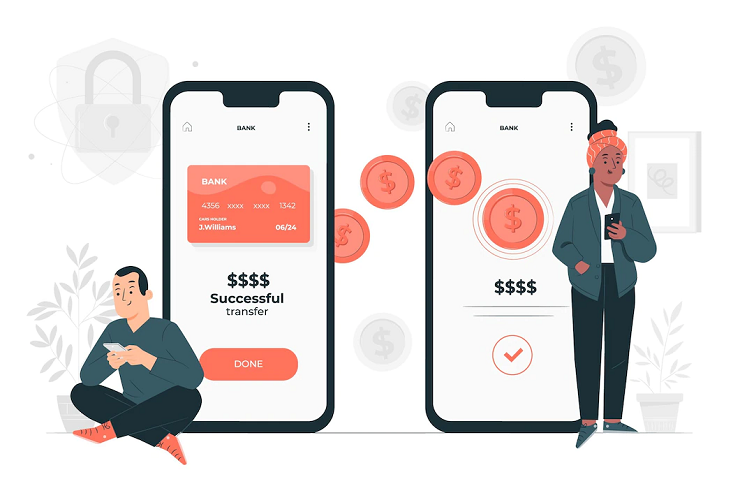
Online banking has gained popularity prior to the pandemic because to its sophisticated web services and mobile apps. However, more than ever, company owners rely on modern technology to satisfy their banking needs from the comfort and safety of their own homes. If you’re considering utilizing an online bank for your business, you should examine the benefits and drawbacks, as well as study how these new banking tools are altering the way business owners interact with their money.
In today’s fast-paced climate, businesses use internet banking to replace in-person visits to a branch. It provides a number of web-based services for doing financial transactions online, including:
- Payment of bills
- Payment of taxes
- Transfers of funds to merchants and providers
- Contributions to retirement funds (either your own account or the pension plan of your employer)
- Create new accounts
- Loan applications for company loans, credit cards, or credit lines
- The ability to cash checks.
Online banking can be accessed via a computer or a mobile app provided by your bank. All you need is a bank account, a secure and strong password, and a reliable internet connection to access your account from anywhere, which is especially crucial now that we are being encouraged to stay at home.
What Are The Advantages Of Online Banking?
Here are some of the advantages of using online banking:
1. Online Bill Payment
One of the key advantages of internet banking is that you do not need to take time out of your day to visit the bank. You may now access your account and pay your bill online. When you have monthly payments to and from suppliers, you may also set up automated bill payments to help you manage your cash flow.

2. Money Transfer
You may need to send money to a customer or vendor quickly, or you may need to move money from one account to another. You may safely transfer money online instead of sending a registered check and waiting for it to clear.
3. Cheques Can Be Deposited Online
You may be able to deposit checks online in minutes rather than traveling to a bank location and waiting in line. Furthermore, because the majority of financial institutions have an app that replicates their services from your phone, you may always bank on the go. In addition, some banks offer customer service that is available 24 hours a day, seven days a week.
4. Reduce Your Overhead Costs
Your business banking costs may be reduced if you bank online since online banks do not have to pay for the cost and upkeep of branches, and those savings may be transferred to you. Furthermore, they may have more no-fee solutions, which will increase your savings.

What Are The Disadvantages Of Online Banking?
While internet banking is always evolving, there are certain drawbacks for company owners that rely on rapid and consistent access to their financial services.
1. Disruptions In Technology
A high speed internet connection is required for internet banking. If your internet connection is disrupted due to a power outage, server difficulties at your bank, or if you are in a distant area, you may be unable to access your accounts. You won’t be able to access your accounts due to regularly planned site maintenance, which can cause you to look for a workaround.
2. The Absence Of A Personal Bond
A personal contact with your bank may be preferable than internet banking. If you need a business loan, a new line of credit, a fee waiver, or to adjust your present banking needs, having that relationship might be beneficial.
In-person banking connections may also assist you in creating a business account that is suited to your individual requirements. They can also put notes in your files concerning checks, cash deposits, and overseas transfers, allowing you to avoid having your money held for a lengthy period of time.
A perfect connection would be a mix of internet banking for day-to-day transactions and a personal relationship with your banker for larger requirements. As a result, you will have a variety of alternatives to help your business.

3. Concerns About Privacy And Security
Financial institutions have excellent security, but no system is perfect. Valuable information is always vulnerable to hacking, however you may be able to avoid this if you:
- Use the mobile app and the website directly whenever possible. A little lock should appear to the left of the search box, indicating that the site is safe.
- Make a powerful password out of a combination of numbers, symbols, and characters. It is also critical to update your password on a frequent basis.
- If you have not agreed to this means of communication, do not click on any links in text messages.
- Use two-step authentication to provide an additional degree of protection.
4. Services Are Limited
Although online banking provides many services, some of them still need company owners to visit banks and “wet sign” paperwork. Loan and credit applications, significant cash withdrawals, and substantial deposits are examples of this. However, as online banking technology advances, you may be able to electronically sign for items in the future.
Conclusion
Banks are continually upgrading and strengthening their digital assets because they know company owners demand the simplicity and convenience of online banking. You may use this fast evolving banking technology to create an online banking system that is specific to your company’s needs. If you believe internet banking might assist your company, speak with your bank about the time and cost savings of moving digital.
